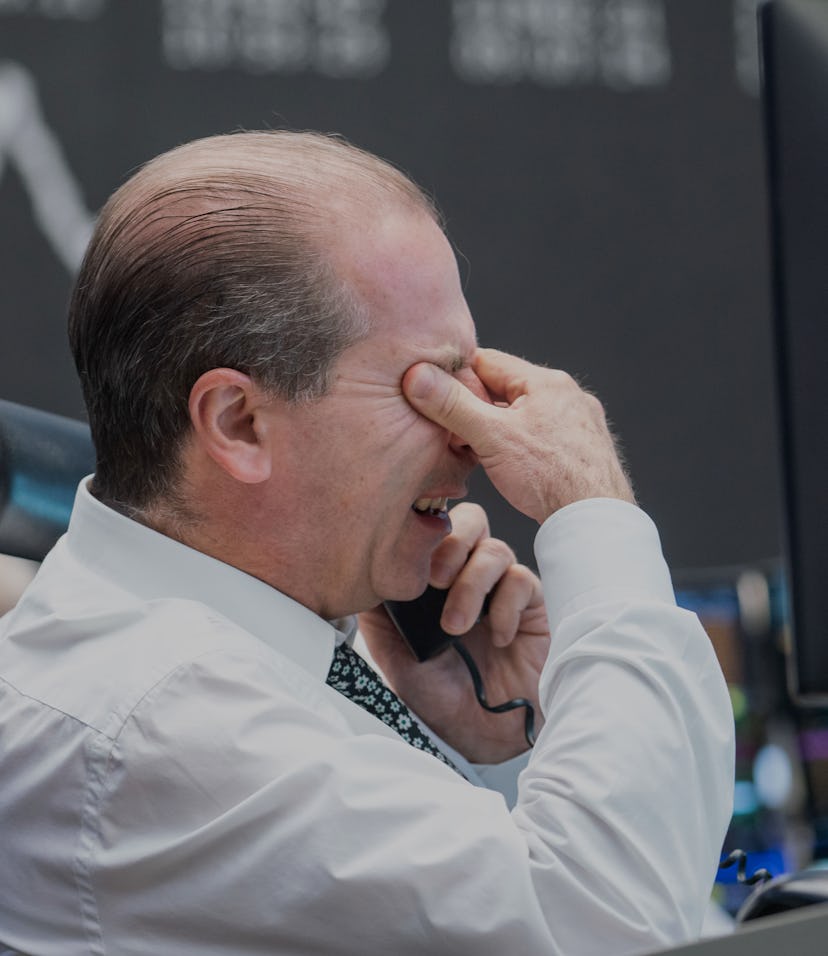Culture
Robinhood sides with Wall Street and locks down AMC and GameStop trades
The trading app claims "We are all investors," except when its investors get spooked, that is.

"Democratizing finance for all." That's the opening line of stock trading app Robinhood's Twitter bio. It's pinned Tweet, meanwhile, reads, "We are all investors. Our time is now." Only, it turns out the same app that's been happy to let retail investors buy risky and potentially ruinous options, isn't willing to let its customers buy heavily shorted stocks and hurt the hedge funds that invested in them in the process. See, it's hard to stick it to the man when "the man" is made up of the same institutional investors behind your multi-billion-dollar valuation startup.
Thursday morning, Robinhood locked down trades of GameStop, AMC, BlackBerry, Nokia, and others and issued a statement entitled, "Keeping customers informed through market volatility," where it confirmed it is "restricting transactions for certain securities to position closing only, including $AMC, $BB, $BBBY, $EXPR, $GME, $KOSS, $NAKD and $NOK."
Investors trying to buy those stocks — all subject to breakneck rises over the past week, thanks in large part to a 2.7-million user subreddit called r/WallStreetBets — were greeted with a message saying, "You can close out your position in this stock, but you cannot purchase additional shares." Robinhood has previously struggled to maintain service when demand is high, but this isn't a system failure, it's a deliberate decision to block trades and protect hedge funds.
For a time, users wanting to buy more of those shares moved to the Square-owned Cash app, which experienced delays executing some trades due to the influx of traffic. Rival Stash, meanwhile, simply returned an error message when trying to load any of the aforementioned stocks.
As one Twitter user put it, Robinhood is in effect taking a unilateral decision to kill AMC and GameStop. And it shouldn't be allowed to.
"Reduce risk" — Numerous Robinhood users who had options on AMC or GameStop received an email on Wednesday evening, advising them that it was placing restrictions on trades of both company's shares, "in light of unprecedented volatility." The company said that its move was "an effort to help reduce risk" and outlined how options set to expire on Friday would now work.
One has to ask, who is Robinhood trying to protect from "risk" exactly? Not Robinhood itself, which makes more money the higher the volume of trades on its platform. Surely not retail investors, who Robinhood's been only too happy to let bankrupt themselves with risky bets. It can only mean risk for those poor hedge fund managers, some of whom have had to retreat to their backers, tails between their legs, and ask for bailouts because they were overleveraged with other people's money.
"Effective immediately, all GME and AMC options with expirations of January 29th, 2021 will be set to closing transactions only. Additionally, our standard sellout procedures on GME and AMC have been adjusted to account for the increased risk. Because of this, your positions are at a higher chance than usual of being closed out if you are unable or choose not to close out the positions yourself."
Stealing from the poor — There have been calls this week from institutional investors for the Securities and Exchange Commission (SEC) to investigate apps like Robinhood that make meme stock movements like this possible. Instead, the SEC ought to be reassessing the rules that govern the funds that prompted the backlash in the first place, and creating punitive measures for companies like Robinhood who are only too willing to let their customers gamble everything they have, as long as doing so doesn't threaten the house.
CORRECTION (01/29): An earlier version of this story stated that Cash app blocked trades on Thursday morning. That's not the case. Instead, it had problems meeting increased traffic, but didn't limit or change users' ability to trade any stocks on its platform. We've updated this story accordingly.